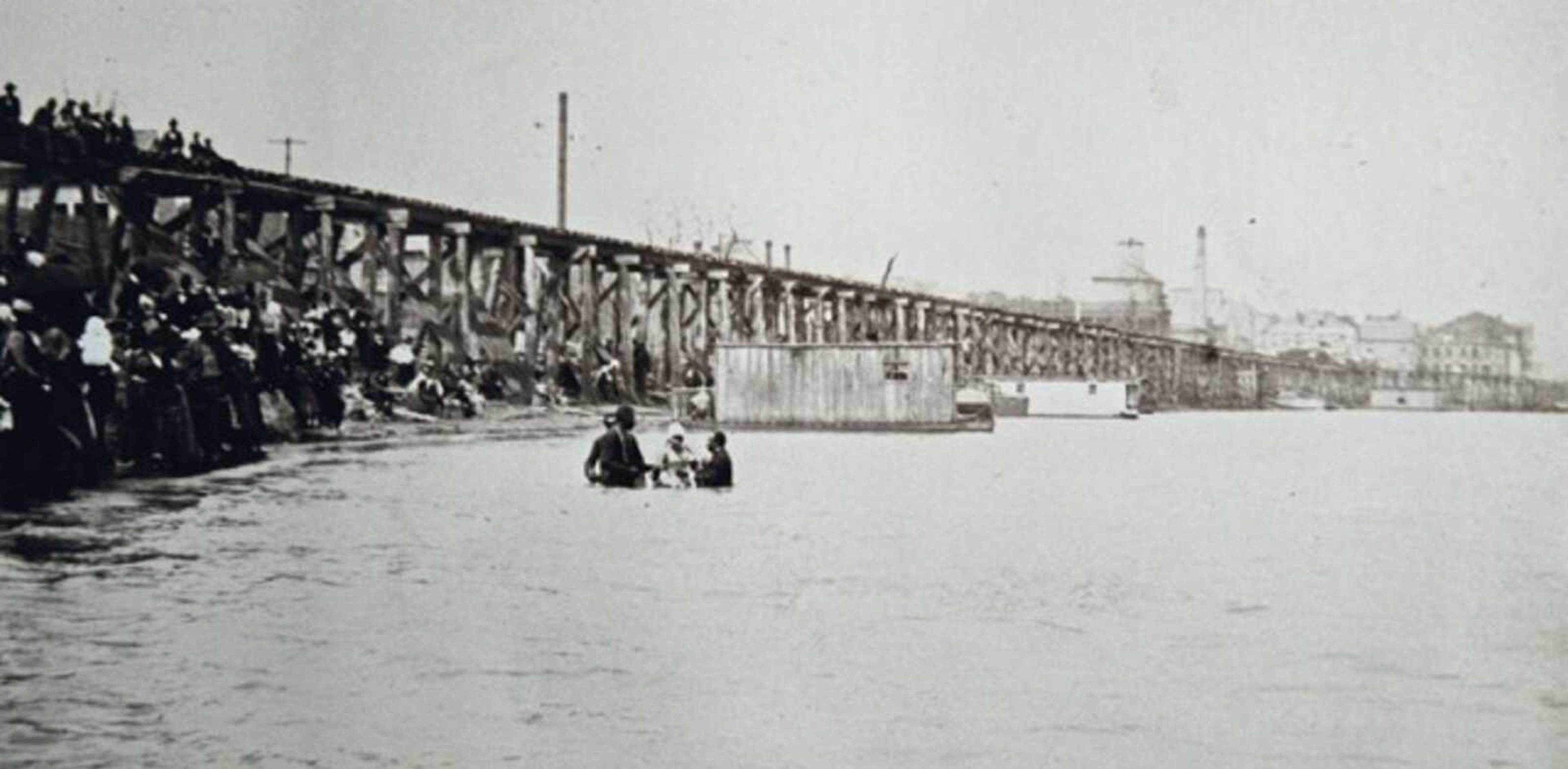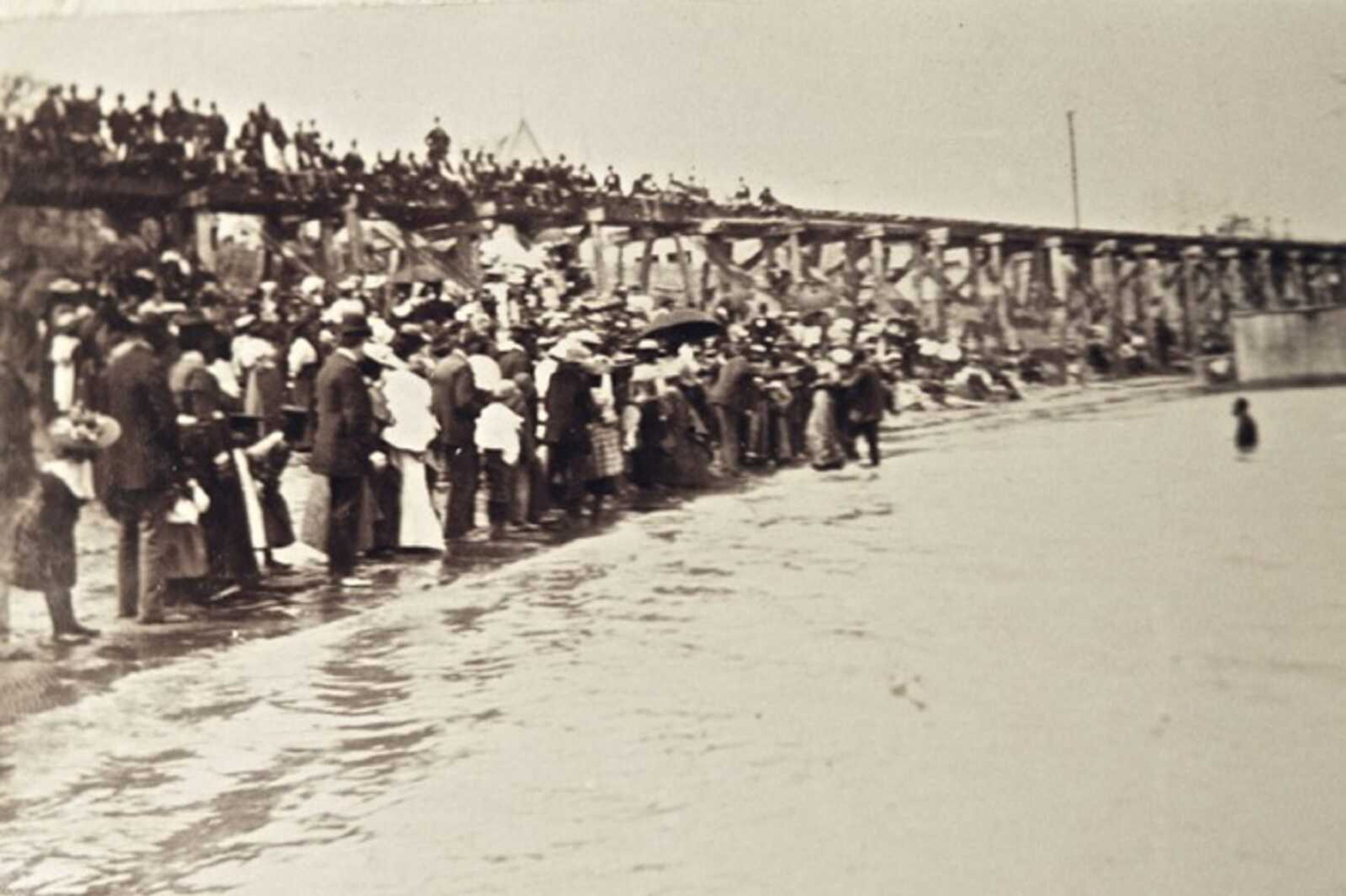Shall we gather at the river?
Cape Girardeau's historic African-American faith communities organized around two traditions: African Methodist Episcopal (AME) and Baptist. Both congregations held regular revival meetings to renew the spiritual journey of the faithful and to attract new believers. ...
Cape Girardeau's historic African-American faith communities organized around two traditions: African Methodist Episcopal (AME) and Baptist. Both congregations held regular revival meetings to renew the spiritual journey of the faithful and to attract new believers. The revivals were followed by ceremonies of baptism for new believers. Both faith traditions practice full immersion baptism, a symbolic demonstration of death to old life, cleansing from sin and the believer's resurrection to new life to live as a follower of Christ.
From the earliest establishment of baptizing congregations, regardless of ethnic tradition, natural settings of rivers, creeks and ponds were utilized for the ritual. Sometimes contentious theological views divided believers over baptism technicalities, adding stipulations such as the need for "moving water," while others required "deep water."
In time, safety, convenience and comfort ushered into acceptance of indoor baptismal pools, now standard in church architecture for many congregations. Some churches without traditional buildings use swimming pools or livestock troughs, further illustrating baptism has less to do with setting or method, than faithful symbolism.
Hattie Jones, in articles she submitted to the St. Louis Argus newspaper's "Out of Town News" section, regularly noted baptisms conducted by Cape Girardeau's Black congregations. The earliest collection of Jones' weekly articles indicate, by 1915, both the AME and Baptist churches often baptized in the still, blue waters of a quarry pool on Hely's Stone Company property, in south Cape Girardeau. Hely's quarry is forgotten, but the original Blue Hole Garden BBQ stand (a culinary legend which lingers in memories of Cape's "seasoned" citizens) gives geographic context for the "baptizing pool."
Certainly, baptism in the Mississippi River presented a believer with a true test of faith!

These unique photos are from the Louis Krueger Collection and are shared with permission of his grandson, Ted Krueger. The elder Krueger, an amateur photographer, began taking pictures of town scenes at the turn-of-the-20th century. Some collection images are dated, but these are not. It appears Krueger respectfully positioned himself and his camera in a boat to memorialize this sacred event. Krueger's own handwritten captions explained the two images. The first photo depicts a pastor standing waist-deep in the river's waters, with a large gathering of congregants and onlookers on the shoreline. Notice the folks riskily standing and sitting atop the elevated railroad tracks on the sweeping trestle for a better view. Krueger's note reads, "The negroes of the Baptist Church immersing the converts." The second image shows a baptismal candidate in the water with the pastor and a few assistants. The extras were possibly deacons or elders, spotters should someone lose footing navigating the slippery river-bottom. This photo does not capture as much of the crowd, but offers a rare glimpse of the 1900s Cape Girardeau's cityscape. The camera is pointed north, also framing riverside buildings and industrial structures long ago removed. Krueger's clear, handwritten script (but non-standard spelling) on this photo's margin verified his location: "'A Negro Baptising.' In the Mississippi River at Cape Gir., Mo."
Thank you, Mr. Krueger!
Connect with the Southeast Missourian Newsroom:
For corrections to this story or other insights for the editor, click here. To submit a letter to the editor, click here. To learn about the Southeast Missourian’s AI Policy, click here.











